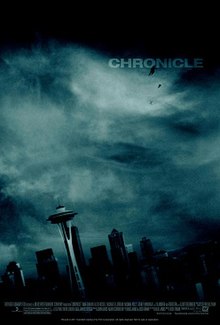Far From the Madding Crowd is almost a perfect example of the Period genre's pornographic sensibilities. It's an idyllic recreation of rural Wessex in the 1800s. The springs are all lush, sun-soaked fields, the winters all virginal white hills. Carey Mulligan is positively radiant as the worlds cleanest farm owner. And as usual the costume and set design are done to near perfection. All of which serves to make the whole endeavour feel just a little bit unreal,undercutting much of the drama and character relationship.
At the time the hiring of The Hunt director Thomas Vinterberg, co-founder of Dogme '95, must have seemed like a radical choice for an adaptation of a Thomas Hardy novel. Which makes it sad then that the result is so conventional. A well-acted, beautifully shot work that look just too nice to feel authentic and a stark contrast to the 1967 version.
The good news is that the nuts and bolts of Hardy's classic novel are still intact. In Mulligan's hands Bathsheba Everdene is a much more tempered creature. Still independent and defiant but more out of uncertainty than the belief that she don't need no man. It even comes across subtly in scenes in which her strength is called upon. When she takes control of Everdene farm her doubt can be heard in Mulligan's voice and yet when she declares her intention 'to astound you all.' she really means it.
As inciting incidents go it really says something when a film can convey utter horror and tragedy at the death of a flock of sheep as befalls Bathsheba's first suitor Gabriel Oak (Matthias Schoenaerts). With smouldering eyes Oak is a decent man but also one coloured by the conventions of the time, thinking he can woo Bathsheba with the promise of comfort and a good income. When he receives his humbling at the death of his livelihood Schoenaerts really sells his sad frustration becomes a picture of nobility in poverty.
Suitor number two comes in the form of wealthy widower William Boldwood (Michael Sheen). This is a role that would seem every bit as arrogant as Oak in the hands of a lesser actor but Sheen vrings real vulnerability to the role. Of all Bathsheba's suitors his is the most sympathetic with an earnestness to his desire to protect her.
Suitor number three is Tom Sturridge's powerhouse of testosterone Sargent Troy. A soldier who manages to woo Bathsheba into a foolish marriage of passion with his fancy swordsmanship (no, not a euphemism). He is perhaps the weakest of the three but speaks to the folly that exists within Bathsheba despite all her resolve.
The conflict between these three men is mostly understated but builds to an intense climax. Mulligan all the while seems to constantly be ruminating on the nature of love and marriage. Having succumbed to her heart with Troy and wishing to follow her head with Boldwood. All the while building a fond friendship with Oak. By the end you see the relationship which has the most value because it has been built over the years not won with money or showmanship.
This for me is what separates Bathsheba from the likes of Lizzy Bennett and Jane Eyre who seem to be simply waiting for circumstances to permit them to marry. Bathsheba on the other hand genuinely develops a strong friendship with her eventual partner. She's not waiting for equality of position (indeed she is of higher status than him for most of the film) but instead equality of affection.
It's a shame then that such timeless storytelling have to live with such a clean, flat production. Everything's been lovingly crafted to perfection but in such a way that leaves the film feeling passionless. Britain still loves it's Period Porn, if we can call it that, but the genre is so overdone that it's in desperate need of a shake-up. This unfortunately isn't it.
